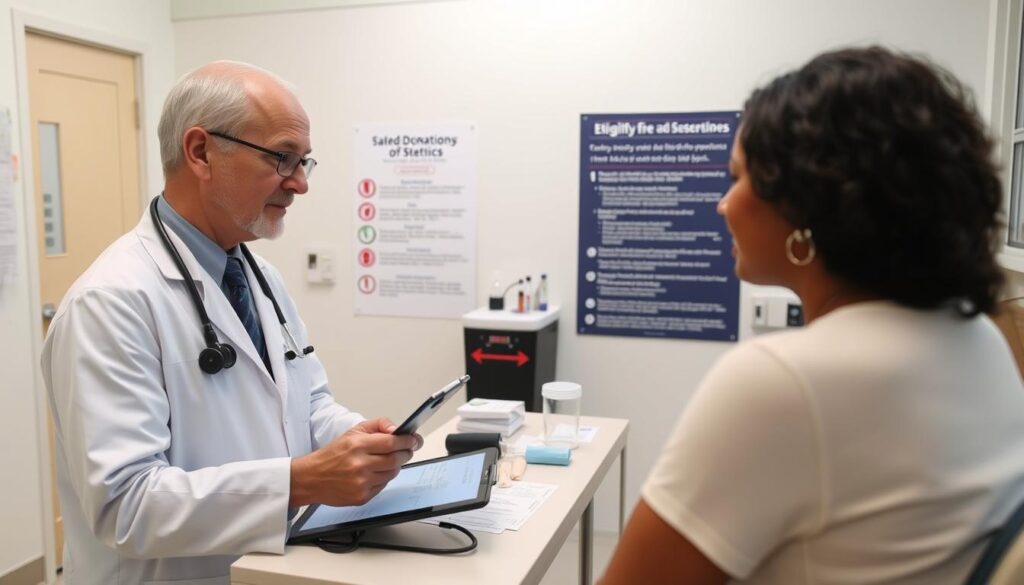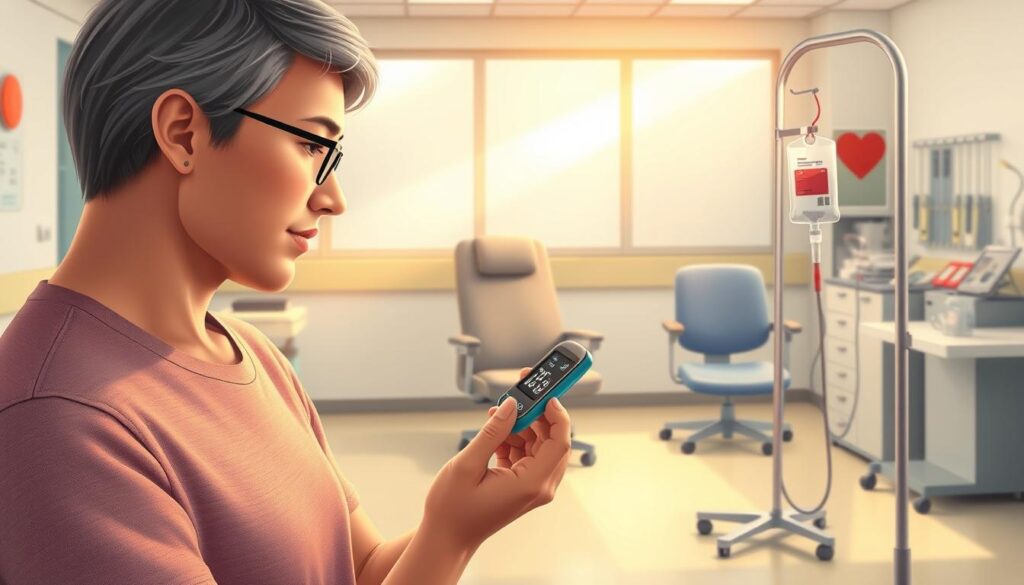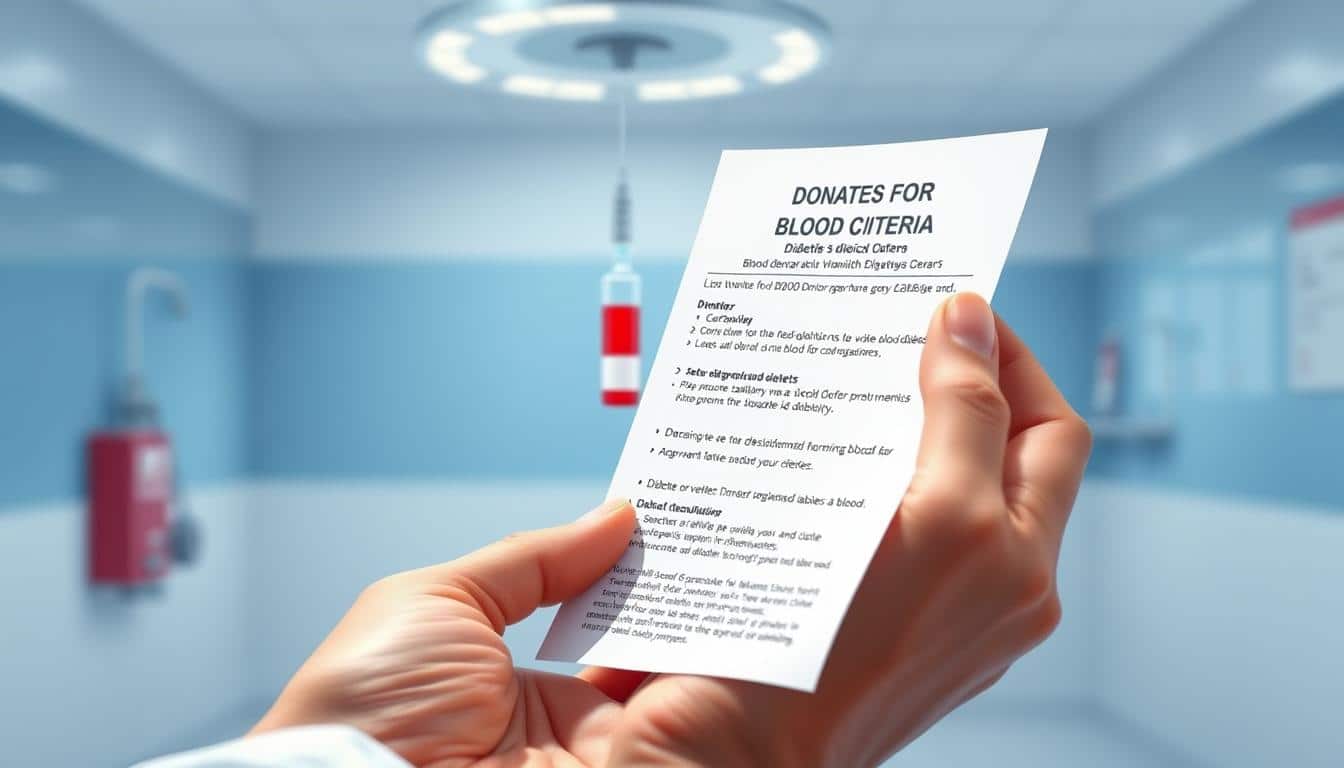Living with diabetes often raises questions about daily activities, including whether donating blood is safe or allowed. This metabolic condition affects how your body processes glucose due to insufficient insulin production or resistance. Both Type 1 and Type 2 variations require careful management, but they don’t automatically disqualify you from contributing to life-saving efforts.
Many individuals with well-controlled glucose levels can participate in blood donation. Health organizations prioritize safety for donors and recipients alike, which means thorough screenings are standard. If your condition is stable and you meet general eligibility criteria, you may still qualify to help others in need.
Understanding the requirements is key. Medical professionals assess factors like recent health history, medication use, and overall wellness during pre-donation evaluations. Those managing their diabetes effectively—through diet, exercise, or insulin—often find the process straightforward.
This guide explores eligibility guidelines, preparation tips, and what to expect during the procedure. You’ll learn how donating blood interacts with your health routine and why this act remains a vital resource for hospitals nationwide. Let’s clarify misconceptions and empower you to make informed decisions about participating in this meaningful cause.
Understanding Diabetes and Its Impact on Your Health
Managing blood sugar effectively starts with knowing how different forms of diabetes work. Each variation disrupts your body’s energy systems uniquely, requiring tailored approaches for optimal health.
Types of Diabetes: Type 1, Type 2, and Prediabetes
Type 1 diabetes occurs when your immune system attacks insulin-producing cells. This autoimmune condition demands daily insulin injections since the pancreas can’t create this vital hormone. In contrast, Type 2 diabetes develops when cells resist insulin’s effects, often linked to lifestyle factors like diet or inactivity.
Prediabetes acts as a warning sign—your blood glucose levels sit higher than normal but haven’t reached diabetic thresholds. Nearly 1 in 3 Americans fall into this category, highlighting the importance of early intervention through diet changes or exercise.
How Blood Glucose Levels Affect Your Body
Your body converts food into glucose for energy. Without enough insulin or proper response to it, sugar builds up in the bloodstream. Over time, elevated levels damage blood vessels and nerves, increasing risks for heart disease or vision problems.
Maintaining balanced blood glucose protects organs and supports daily energy needs. Regular monitoring helps people adjust meals, activity, or medications. Even small improvements in management can significantly enhance long-term health outcomes.
Eligibility Criteria for Blood Donation
Meeting donation requirements ensures your contribution benefits others while protecting your well-being. Health organizations like the American Red Cross prioritize safety through strict screening protocols. These evaluations balance accessibility with medical responsibility.

General Health Requirements and Weight Restrictions
Donors must weigh at least 110 pounds and be 17+ in most states. Recent illnesses or low iron levels may temporarily defer participation. Centers also check blood pressure and pulse to confirm your body can handle the process smoothly.
Travel history matters—visits to malaria-risk areas or specific countries might delay eligibility. Always share accurate health details during screenings. Transparency helps staff assess risks for both you and recipients.
Medication Considerations for Diabetics
Using insulin or oral medications doesn’t automatically disqualify you. Eligibility depends on stable blood sugar levels and overall disease management. Disclose all prescriptions, as some non-diabetes drugs could affect approval.
Screeners evaluate how well you maintain target glucose ranges through recent lab results or self-monitoring data. Well-controlled type 2 diabetes rarely impacts donation ability if other criteria align. Hydrate well and eat balanced meals before arriving to support stable sugar levels during the procedure.
Can diabetics give blood
Successful blood donations rely on careful preparation when managing metabolic conditions. Stable sugar levels are essential for both donor safety and recipient well-being. Medical guidelines confirm that individuals using insulin or oral medications can often participate if their blood sugar remains within target ranges.

Optimizing Your Health Before Donating
Regular monitoring helps maintain glucose levels that meet eligibility standards. Check your readings 24 hours before and after the procedure. Adjust meals or medication timing temporarily if approved by your healthcare provider.
Hydration and balanced nutrition support stable blood sugar during the donation process. Avoid fasting or drastic dietary changes beforehand. Carry snacks to stabilize energy if needed post-donation.
Partnering With Medical Professionals
Always consult your doctor to evaluate your readiness for blood donations. They’ll review your management plan and recent lab results. This step ensures no hidden risks exist related to your current treatment regimen.
Physicians can adjust insulin schedules or suggest temporary modifications. Their guidance helps you meet eligible donate requirements while prioritizing personal health. Open communication turns theoretical guidelines into actionable steps for safe participation.
The Blood Donation Process for Diabetics
Navigating the blood donation process requires understanding both medical protocols and personal health management. Screening steps ensure safety while addressing unique needs related to glucose control. Here’s how to approach each phase confidently.
Health Screening and Vital Measurements
Staff begin by reviewing your medical history and current medications. They’ll check your temperature, pulse, and blood pressure to confirm your body can handle the procedure. A finger-prick test measures hemoglobin levels—low iron may delay eligibility.
Disclose all prescriptions, including insulin or oral diabetes drugs. Most centers allow donations if your medication regimen hasn’t changed recently. Bring a list of dosages and times taken for accuracy.
What to Expect During the Donation Procedure
The actual blood collection takes 8-10 minutes. You’ll sit comfortably while a sterile needle draws one pint—your body replaces this volume within 48 hours. Staff monitor for dizziness or fatigue, common but manageable reactions.
Eat a balanced meal 2-3 hours beforehand and drink extra water. Avoid strenuous activity for 24 hours post-donation. Check your blood sugar more frequently that day, adjusting snacks or medications as needed.
Recovery involves resting and hydrating. Most people resume normal activities the next day. Contact the center if you experience prolonged weakness or unstable glucose levels.
Tips to Prepare for a Safe Blood Donation
Strategic health management before and after donation safeguards your glucose control and contribution effectiveness. Following specific requirements helps maintain energy levels while supporting those in need.
Fueling Your Body Properly
Start hydrating 48 hours beforehand—aim for 8-10 cups of water daily. Iron-rich foods like spinach or lean beef boost hemoglobin, meeting range standards for eligibility. Limit caffeine to prevent dehydration and stabilize your condition.
Pack a list of medications and recent lab results for screening. Eat balanced meals with complex carbs and protein 2-3 hours before arriving. This prevents dizziness and keeps blood sugar within target zones.
Recovery Essentials After Giving
Check glucose levels immediately post-donation and every few hours. Snack on nuts or yogurt to replenish energy without spiking sugar. Avoid heavy exercise for 24 hours to let your body recover fully.
Incorporate vitamin C with iron-rich meals to enhance absorption. Common questions about fatigue or lightheadedness often resolve with rest and fluids. Contact your doctor if readings fall outside your normal control parameters.
Conclusion
Contributing to community health through blood donation remains achievable for many with well-managed glucose levels. Organizations like the American Red Cross welcome participation from those maintaining stable blood pressure and consistent monitoring habits. Proper preparation—hydration, balanced meals, and medical consultations—ensures a safe experience for donors and recipients.
Eligibility hinges on meeting weight requirements, recent health history, and controlled blood sugar levels. Partner with your healthcare team to confirm readiness before attending a blood drive. Their guidance helps align your management plan with donation protocols.
Every donation through the American Red Cross supports hospitals and patients in critical need. By staying informed and prioritizing stable health metrics, you can make a life-saving impact. Review current guidelines, assess your eligibility, and consider joining this vital effort.
Your commitment to careful preparation and collaboration with professionals turns generosity into actionable care. Together, communities thrive when individuals step forward to give—safely and confidently.
FAQ
Are individuals with diabetes allowed to donate through organizations like the American Red Cross?
Yes, if your condition is well-managed. Organizations like the American Red Cross permit donations provided your blood sugar levels remain stable, you meet weight requirements, and have no complications from insulin or other medications.
Does insulin use disqualify you from donating?
No. Using insulin doesn’t automatically make you ineligible. As long as your treatment hasn’t changed recently and your glucose stays within a healthy range, you can donate. Always disclose medications during the pre-donation screening.
Should you check your blood glucose before arriving at a blood drive?
Yes. Test your levels beforehand to ensure they’re within your target range. Most centers recommend levels between 80-180 mg/dL for safety. Avoid donating if you’ve experienced recent hypoglycemia or hyperglycemia episodes.
What steps help stabilize sugar levels prior to donation?
Stay hydrated, eat balanced meals rich in iron and protein, and avoid sugary snacks. Monitor your glucose closely for 24-48 hours before the appointment. Inform staff if you feel dizzy or unsteady during the process.
How soon after donating should you check your blood sugar?
Test immediately afterward and continue monitoring for the next 12-24 hours. Drink fluids, rest, and consume snacks provided by the center to prevent drops in glucose. Contact your doctor if levels fall outside your normal range.
Can gestational diabetes affect eligibility?
Temporary conditions like gestational diabetes typically don’t disqualify you once resolved. Wait at least six weeks after pregnancy ends and ensure your glucose levels return to normal without medication before attempting to donate.


